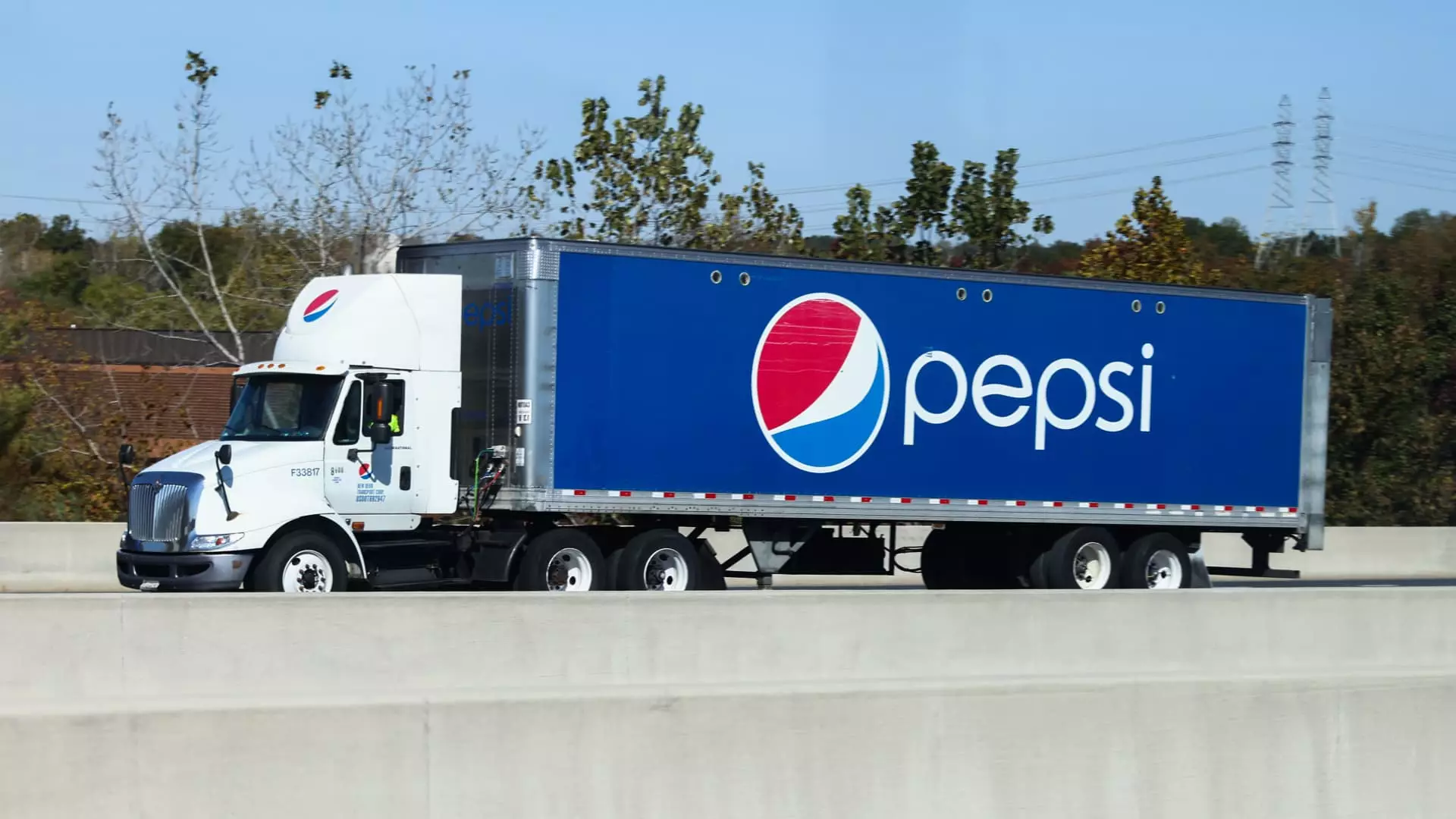PepsiCo is navigating significant headwinds, as revealed by their latest financial disclosures. Following two consecutive quarters of disappointing sales, the company has reduced its full-year organic revenue forecast, indicating deeper challenges within its operational framework. CEO Ramon Laguarta articulated these concerns, citing a mix of domestic demand fluctuation, international market disruptions, and the aftermath of product recalls that have marred the company’s reputation and fiscal performance.
For the fiscal year 2024, PepsiCo now anticipates a modest single-digit increase in organic revenue—a stark contrast to the previously projected growth rate of 4%. This adjustment reflects a broader concern regarding consumer trends, where American shoppers seem to be shifting their purchasing behaviors across all income brackets. The ongoing impacts of product recalls, particularly associated with the Quaker Foods North America division, have amplified this downturn.
Despite these challenges, PepsiCo remains optimistic about its core constant currency earnings per share, maintaining its projection for an at least 8% increase. The financial markets, however, reacted somewhat skeptically to the news; the company’s shares dipped by 1% in premarket trading, suggesting that investor confidence may be waning amidst these operational tribulations.
When examining PepsiCo’s latest quarterly outcomes, the numbers illustrate a company grappling with pressure on multiple fronts. The adjusted earnings per share came in at $2.31, slightly above the expected $2.29. However, the revenue figures tell a more concerning story; total net sales reached $23.32 billion, falling short of Wall Street expectations of $23.76 billion. This disappointing revenue result emphasizes not only an overall decline in demand but also a shrinking market share in a competitive landscape.
Net income attributable to PepsiCo saw a decline to $2.93 billion, or $2.13 per share, down from the $3.09 billion, or $2.24 per share, reported in the previous year. This downward trajectory raises questions about the company’s operational efficiency and market strategy, particularly as they reported a 0.6% dip in net sales and a mere 1.3% increase in organic revenue once non-core elements were stripped out.
Compounding these revenue challenges, PepsiCo’s volumes across its food and beverage categories both declined by 2%. The Quaker Foods North America division exhibited particularly stark results, suffering a 13% drop in volume—a direct consequence of product recalls initiated to address potential salmonella contamination. These recalls, which began in December and continued into January, have highlighted significant weaknesses in product safety and quality assurances.
Glimmers of hope emerged from other sectors, yet these seemed insufficient to offset the overarching declines. The Frito-Lay North America segment saw a 1.5% decrease in volume despite efforts to enhance product availability and perceived value. Popular snacks such as Cheetos and Stacy’s pita chips have not been immune to market pressures and shifting consumer preferences.
PepsiCo is not alone in facing these downturns; the salty and savory snack categories have generally underperformed compared to their historical trends. Executives have noted a marked decline, attributing this to increased competition, changing consumer preferences, and potentially tapered discretionary spending.
In the beverage segment, volume for North American operations experienced a 3% decrease, although brands like Gatorade and Pepsi did manage some revenue growth. Conversely, other international markets—including Latin America and regions in Africa and the Middle East—similarly reported diminishing volumes across both food and beverage product lines.
PepsiCo’s latest performance report highlights a troubled landscape marked by recalls, changing consumer behaviors, and international disruptions. The company’s lowered expectations serve as a cautionary indicator of challenges ahead, necessitating strategic adjustments if they are to regain their footing and seize renewed growth in an increasingly competitive environment. As PepsiCo charts its course forward, the company must reassess its operational strategies to adapt effectively to these market realities.

Leave a Reply